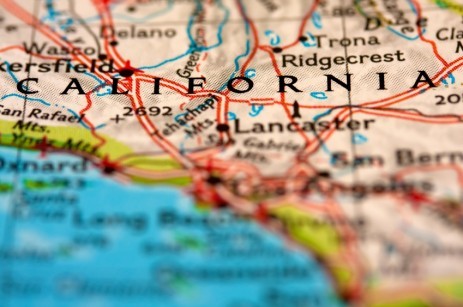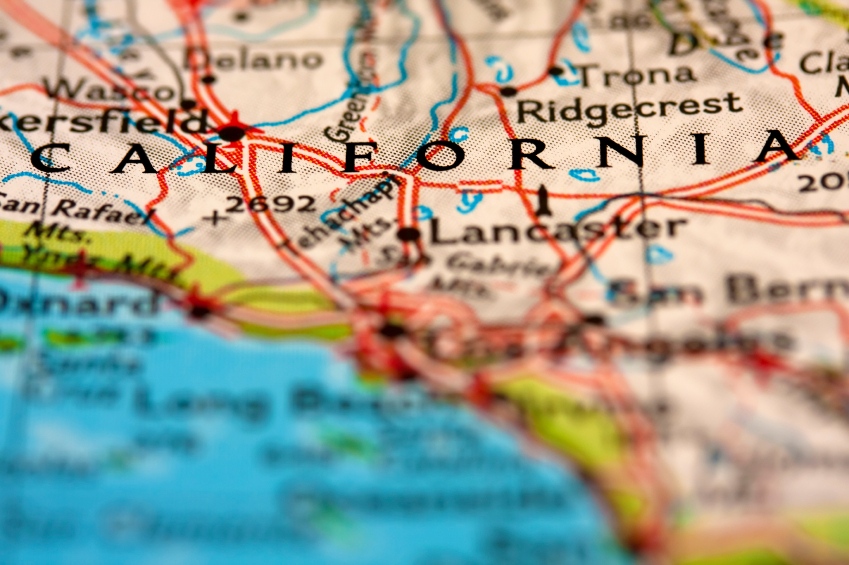 When you mix red and blue in a state like California, you get green.
When you mix red and blue in a state like California, you get green.
Tuesday’s landslide defeat of Proposition 23 — the ballot measure bankrolled by Texas oil companies Tesoro and Valero that would have suspended the state’s landmark global-warming law — marked the emergence of a bipartisan, enviro-business coalition that spanned the demographic divide.
With nearly all ballots counted Wednesday morning, 61.3 percent of voters rejected Prop 23 in the nation’s first statewide plebiscite on a climate-change law.
Equally important, voters swept into California’s top offices a slate of environmentalists led by Gov.-elect Jerry Brown of Oakland. In what amounts to a takeover of Sacramento by Bay Area deep green Democrats, San Francisco Mayor Gavin Newsom was elected lieutenant governor and Kamala Harris, San Francisco’s district attorney, looks like she will become the attorney general if her narrow lead holds. Both Brown and U.S. Sen. Barbara Boxer decisively dispatched Republican candidates who opposed or would undermine the global-warming law, known as AB 32.
Brown, of course, set California down the green path in the 1970s during his first term as governor. He pushed renewable energy projects, energy efficiency, and other policies that would set the stage for the state’s green tech boom and that would be embraced by a successor (and now a predecessor), Gov. Arnold Schwarzenegger (R).
And the passage of Proposition 25, which allows the state legislature to pass a budget with a simple majority rather than a two-thirds vote, should ease the way for the passage of a green agenda.
Voters also threw a spanner in the works on Tuesday when they passed oil industry–backed Proposition 26, which will reclassify certain environmental fees as taxes and require a two-thirds vote of the legislature to impose them. It remains unclear how exactly that will hinder the implementation of AB 32.
UPDATED Nov. 4:
But on Wednesday, a top California official said that since Prop 26 applies only to laws enacted after Jan. 1, it should not affect AB 32, which was signed into law by Gov. Arnold Schwarzenegger in 2006.
“We do not believe our efforts will be derailed as a result of Proposition 26 passing,” Mary Nichols, chair of the California Air Resources Board, the agency charged with implementing AB 32, said during a conference call with reporters on Wednesday. “It’s full speed ahead.”
The question now is whether Tuesday’s election is another example of California exceptionalism or a template for other states (given that chances for congressional action on climate change seem slim to none).
And so does this new green alliance — of big environmental groups, Silicon Valley venture capitalists and tech giants, hedge-fund managers, old economy businesses, and environmental-justice activists — continue or wither now that the threat to AB 32 has passed?
Clearly, many in the No on 23 coalition see the defeat of the ballot measure as the beginning, not the end, of a much larger campaign.
“Great campaigns are ones that win the victory you want but also build power for the long haul,” Danny Kennedy, cofounder of Oakland solar company Sungevity and a former Greenpeace activist, said at a Prop 23 fundraiser in September that brought together hedge-fund titans and venture capitalists with environmental-justice advocates. “And this is one of those,” he told the crowd. “This is a really fun opportunity because we’re going to beat those boys back to Texas where they came from and we’re going to build this beautiful thing we see in the seed of this group in this room.”
Bob Epstein, a founder of E2 Environmental Entrepreneurs, said at the group’s conference in San Francisco last week, “if we want to build this into a national movement, state by state, the messaging is critical.”
“Every campaign has three items: It has a victim, it has a villain, and it has an opportunity,” said Epstein. “The No side says, ‘Stop the dirty energy proposal brought to you by two Texas oil companies.’ It’s all emotional. The reason? It will make the air dirtier, it’ll harm our clean energy jobs, and it’ll keep us on fossil fuels. The victim: Anyone who breathes air near a refinery. The villain: In this case, Valero volunteered.”
On the Natural Resources Defense Council blog, Annie Notthoff, the group’s California political director, analyzed the election. “We have pitched a very large tent, and we accommodate people of all political points of view,” she wrote. “But we agree on a couple of things, and those transcend all our differences: We need to get people working, and we need to develop new sources of clean, domestic energy that support the economy and improve public health. Until we do that, everything else is a sideshow.”



